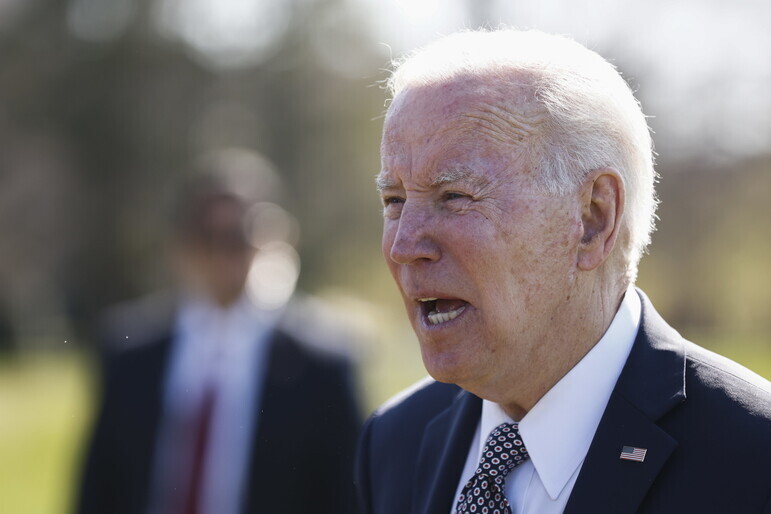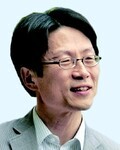hankyoreh
Links to other country sites 다른 나라 사이트 링크
[Column] The new Cold War isn’t the same as the old one


By Suh Jae-jung, professor of political science and international relations at the International Christian University in Tokyo
After leading Great Britain to victory in World War II, Prime Minister Winston Churchill suffered a shocking defeat in the postwar general election. But while visiting the US in March 1946, as leader of the opposition, he prophesied the arrival of a new war.
“From Stettin in the Baltic to Trieste in the Adriatic, an iron curtain has descended across the continent.”
Churchill’s “iron curtain” speech pointed to the coming of the Cold War, as the unity between the allied forces frayed following their wartime victory.
The “long telegram” from the US Embassy in Moscow had already arrived in Washington a month prior. In a lengthy 8,000-word telegram, embassy Charge d'Affaires George Kennan urgently warned the US secretary of state about the “problem of Soviet communism” and called for taking prudent but thorough measures to find a solution to grave strategic issues in the war.
Kennan described the Soviet Union as being “committed fanatically to the belief that [. . .] it is desirable and necessary that the internal harmony of our society be disrupted, our traditional way of life be destroyed, [and] the international authority of our state be broken.”
That marked the beginning of the US’ policy of containment against the Soviet Union. The Soviet Union’s iron curtain and the US’ policy of containment coincided to form the new international order of the Cold War. But for that containment, it wasn’t enough to exclude the Soviet Union from the so-called free world.
The US provided security to other countries through the North Atlantic Treaty Organization and through alliances with Japan and South Korea. The US suffered major loss of life in the Korean and the Vietnam wars and spent huge amounts of money fighting them, but Americans accepted those as costs that must be borne to defend the “free world.”
“Our policy is directed not against any country or doctrine but against hunger, poverty, desperation and chaos,” declared George Marshall, the namesake of the Marshall Plan.
The US also provided massive financial support to rebuild its allies’ economies. Marshall, a war hero, served as secretary of state after WWII and crafted a US$15 billion plan for rebuilding Europe. That amounted to 5% of the US’ gross domestic product at the time.
Marshall asserted that this economic aid had absolutely no political motivations. He received the Nobel Peace Prize in 1953.
But Marshall attached conditions that put the aid out of reach of countries in Eastern Europe, and the greatest beneficiaries of the Marshall Plan were the UK, France and West Germany. That economic aid served as the catalyst for the formation of NATO and marked the beginning of the Cold War in Europe.
The Cold War was an international order that the US erected at enormous expense. To be sure, American capitalism can be seen as the biggest winner of that order, so those American efforts were probably not driven by compassion. Even so, it’s important to recall that it was the US that provided the “public goods” needed for the international order in the Cold War.
The situation I delineated above is completely different from the current situation, which some are calling the “new” Cold War. The Biden administration is vocally criticizing China and Russia as being authoritarian states and is denouncing Russia’s war crimes in its invasion of Ukraine. But US actions aren’t living up to its rhetoric, and it is consuming public goods instead of providing them.
Though Ukraine has been invaded by an authoritarian state, the US has ruled out military intervention. To be sure, Ukraine is not an American ally — but then again, neither was South Korea in 1950.
American officials talk up the risk of the war in Ukraine escalating into a world war, but that risk also existed in 1950. Today, Americans simply don’t want their countrymen to lose their lives in defense of the international order.
Instead, the US is providing the Ukrainian government with weapons systems and military training. In effect, Americans are patting Ukrainians on the back and urging them to keep up the fight.
The US isn’t shouldering the economic cost of the war, either. More than 4 million Ukrainians have been displaced by the war, but that’s Europe’s problem. The US has said it will accept up to 100,000 people through “various legal channels.”
The US has adopted various economic sanctions to punish Russia, but here too, Europe is the biggest loser. Sanctions are causing turmoil in European countries that had exported manufactured goods to Russia and imported natural resources, including natural gas, but perish the thought of another Marshall Plan.
Once again, the US is selling them crude oil and natural gas, with some more cynical encouragement about how good a job Europe is doing.
The US is attempting to band the world together and punish Russia through the international organizations and international order it has built over the years. It’s brandishing the power of the dollar and the global trade order.
But the more it relies on such tactics, the more it loses the world’s trust. If hegemony means consuming the world’s public goods, rather than providing them, can the international order be maintained?
This new Cold War isn’t the same as the old one. Perhaps Korea and East Asia ought to be pursuing a different strategy this time around.
Please direct questions or comments to [english@hani.co.kr]

Editorial・opinion
![[Editorial] Penalties for airing allegations against Korea’s first lady endanger free press [Editorial] Penalties for airing allegations against Korea’s first lady endanger free press](https://flexible.img.hani.co.kr/flexible/normal/500/300/imgdb/original/2024/0502/1817146398095106.jpg) [Editorial] Penalties for airing allegations against Korea’s first lady endanger free press
[Editorial] Penalties for airing allegations against Korea’s first lady endanger free press![[Editorial] Yoon must halt procurement of SM-3 interceptor missiles [Editorial] Yoon must halt procurement of SM-3 interceptor missiles](https://flexible.img.hani.co.kr/flexible/normal/500/300/imgdb/child/2024/0501/17145495551605_1717145495195344.jpg) [Editorial] Yoon must halt procurement of SM-3 interceptor missiles
[Editorial] Yoon must halt procurement of SM-3 interceptor missiles- [Guest essay] Maybe Korea’s rapid population decline is an opportunity, not a crisis
- [Column] Can Yoon steer diplomacy with Russia, China back on track?
- [Column] Season 2 of special prosecutor probe may be coming to Korea soon
- [Column] Park Geun-hye déjà vu in Yoon Suk-yeol
- [Editorial] New weight of N. Korea’s nuclear threats makes dialogue all the more urgent
- [Guest essay] The real reason Korea’s new right wants to dub Rhee a founding father
- [Column] ‘Choson’: Is it time we start referring to N. Korea in its own terms?
- [Editorial] Japan’s rewriting of history with Korea has gone too far
Most viewed articles
- 1Months and months of overdue wages are pushing migrant workers in Korea into debt
- 2[Editorial] Penalties for airing allegations against Korea’s first lady endanger free press
- 3Bills for Itaewon crush inquiry, special counsel probe into Marine’s death pass National Assembly
- 4[Reporter’s notebook] In Min’s world, she’s the artist — and NewJeans is her art
- 560% of young Koreans see no need to have kids after marriage
- 6S. Korea discusses participation in defense development with AUKUS alliance
- 7Trump asks why US would defend Korea, hints at hiking Seoul’s defense cost burden
- 81 in 3 S. Korean security experts support nuclear armament, CSIS finds
- 9Korean firms cut costs, work overtime amid global economic uncertainties
- 10[Guest essay] Maybe Korea’s rapid population decline is an opportunity, not a crisis